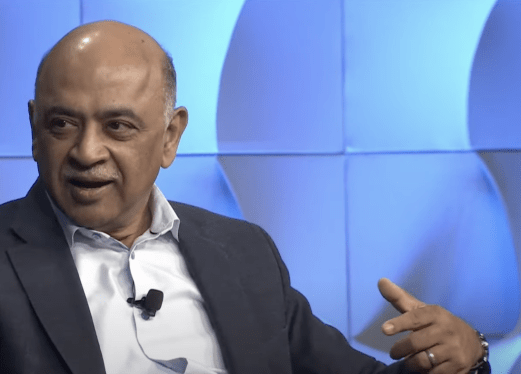IBM CEO urges the Trump Administration to increase — not cut — federal AI R&D funding

Like many leaders in tech, Arvind Krishna, the CEO of IBM, thinks federal R&D funding for AI and related technologies should be increased — not the other way around .
“We have been an extremely strong advocate — and this is both the company and me personally — on that federally funded R&D should be increased,” Kirshna said in an interview with TechCrunch. “That’s the position, which is unequivocal, and we strongly believe in that.”
President Donald Trump and his cabinet have sought to make deep cuts to federal grantmaking and scientific research programs in pursuit of a far different set of priorities than previous administrations.
In recent weeks, a key federal office for AI research, the Directorate for Technology, Innovation, and Partnerships (TIP), has been hit by steep budget reductions . Meanwhile, scores of staffers at the National Institute of Standards and Technology and the National Science Foundation (NSF), which houses TIP, have found themselves on the chopping block.
In its proposed budget for fiscal year 2026 , the Trump administration is calling on Congress to slash over half of the NSF’s funding, eliminating what it describes as wasteful and “woke” spending. At risk are the billions of dollars awarded to AI R&D projects by the NSF and other federal agencies, like the National Institutes of Health and the Department of Energy, which are also facing cuts.
Trump has also threatened to end the CHIPS Act, a major Biden administration-era law that sought to boost domestic semiconductor production in the U.S., including the production of specialized chips for AI. The office responsible for administering CHIPS Act funds was largely gutted in early March .
Tech industry groups including The Software and Information Industry Association have sent letters to White House AI “czar” David Sacks and Commerce Secretary Howard Lutnick warning that the reductions could hobble America’s global leadership in AI. According to the U.S. Joint Economic Committee , federally funded research yields annual returns of 25-40%, comparing favorably to the 15-27% returns achieved by top-quartile VC funds .
“We believe that [federal R&D funding] right now [is] happening at close to historic lows in terms of percentage of GDP,” Krishna told TechCrunch, “and that more federally funded R&D has an incredibly positive effect on the economy, on economic growth, on the competitiveness of the United States, and also in investing in many technologies that are essential for our future.”
IBM has been directly affected by federal cutbacks. During its Q1 earnings call in April, the company revealed that 15 of its federal contracts were canceled, amounting to $100 million in future payments. Federal contracts represent between 5% and just under 10% of IBM’s consulting practice.
Krishna, who was quick to note that federal funding makes up only a fraction of IBM’s overall business, said that he’s “optimistic” the government will ramp up R&D spending within a year.
“I will tell you I expect that in a year […] federally funded R&D for AI, for quantum, for semiconductors — I expect it to be in as good or in a better shape than it is today,” Krishna said.

Published on Other News Site
















